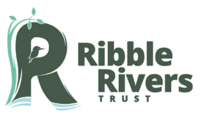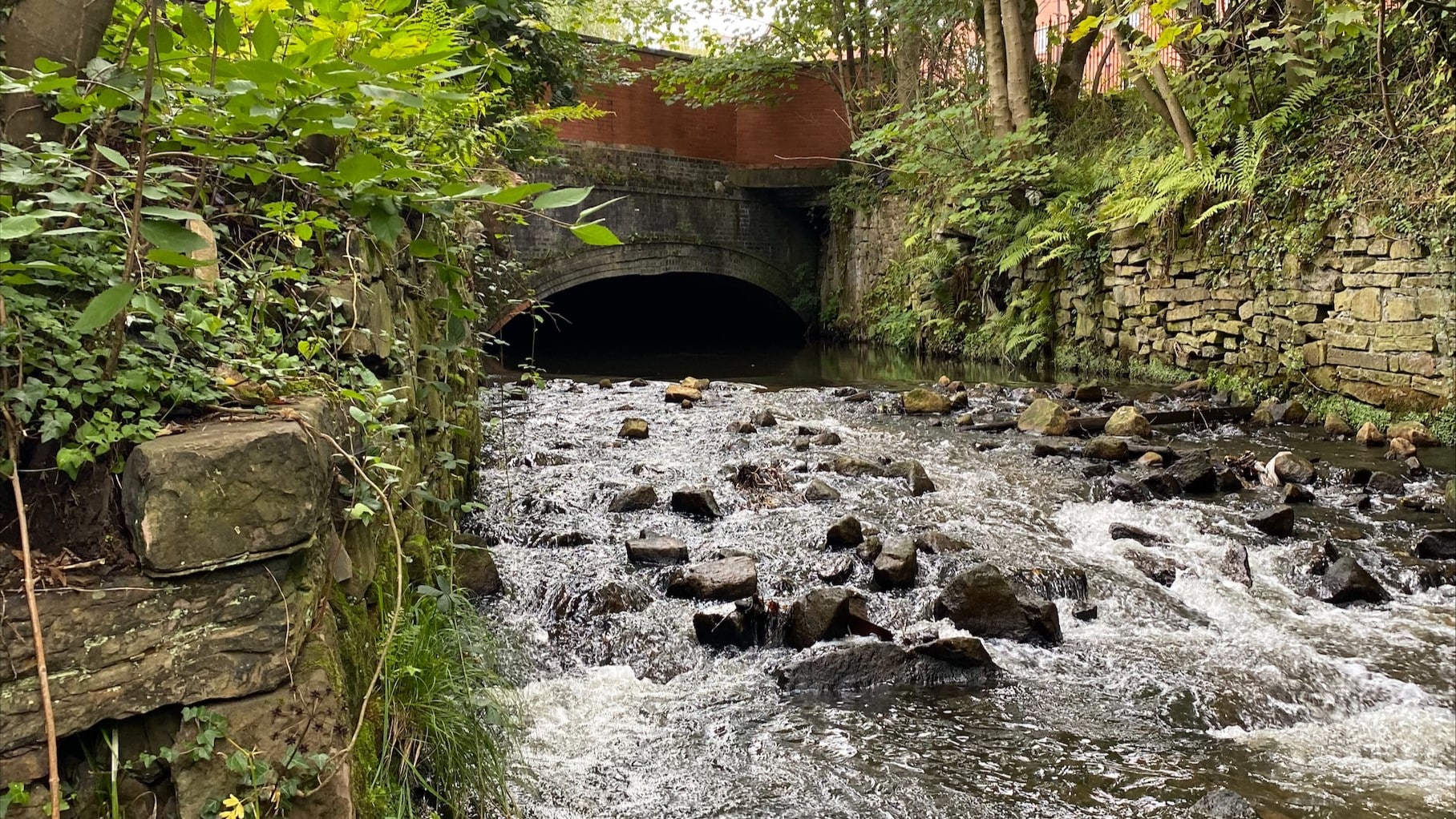
OUR Douglas
Opening Up the River (OUR) Douglas Project is the first major project the Ribble Rivers Trust will deliver on the River Douglas Catchment. The project aims to create a healthier river environment by improving fish passage between Gathurst and Horwich. The project is being delivered with our partner Groundwork Cheshire, Lancashire and Merseyside who are hosts for the Douglas Catchment Partnership, who act as the Steering Group for the project.
The £949,454 project is receiving £505,828 from the Ministry for Housing Communities and Local Government, through the European Regional Development Fund, £387,347 from delivery partner Groundwork Cheshire, Lancashire and Merseyside, as well as charitable funding from Ribble Rivers Trust.
The project will achieve its aims through reconnecting river habitat. When a habitat is disconnected and animals, in our case fish, are prevented from moving to different areas to feed, breed, and find new habitats. This prevents them from reproducing, limits their gene pool, stops them from moving to new and potentially better habitats, and means that hey cannot access plentiful food sources.
By reconnecting rivers and removing barriers we will see a river environment that will support greater abundance and diversity of fish, invertebrates, bird and mammals.
Through improving one of the major rivers within Lancashire’s unique landscape the project aims to also raise awareness of the river and its biodiversity. Plus, the enhanced blue space will benefit people as well as wildlife.
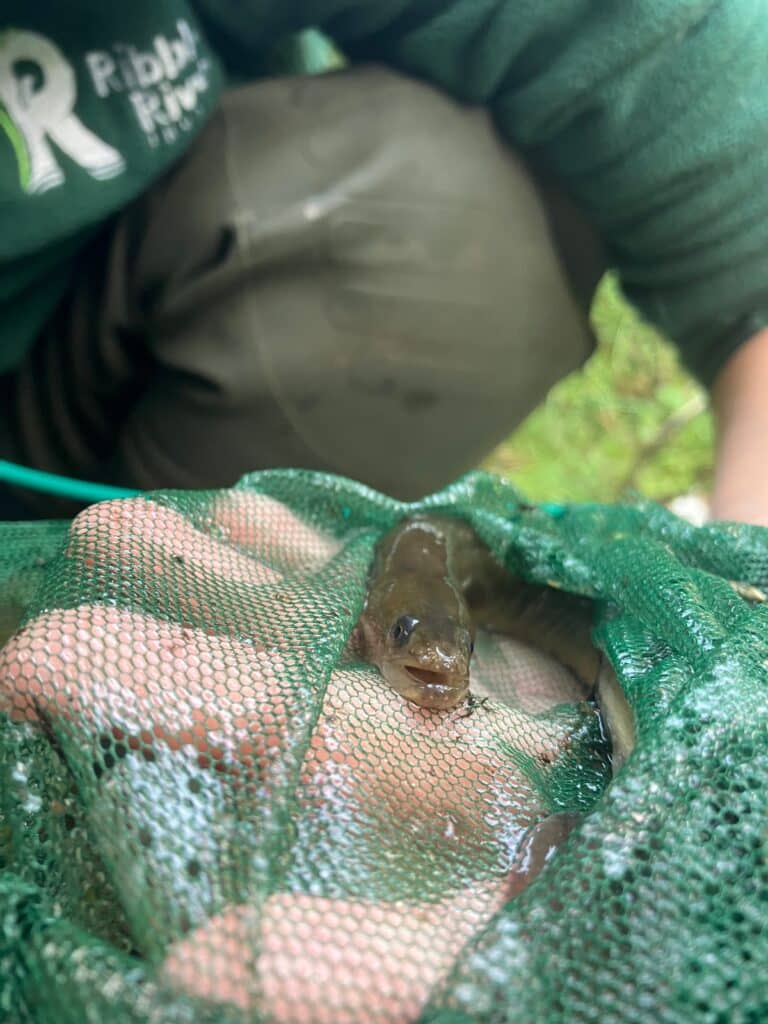
What will OUR Douglas involve?
The River Douglas is in Lancashire and Greater Manchester. Flowing from the West Pennine moors at Winter Hill, past the urban centres of Horwich, Adlington and Wigan then northwards through largely agricultural areas and is joined by the River Tawd, south of Rufford and the River Yarrow north of Rufford. It meets the Ribble estuary north of Tarleton, near Preston. The waters then flow northwards towards the bathing waters of the Fylde Coast.
The River Douglas is currently in a degraded state with all water bodies failing to meet “Good Ecological Status”. This is due to a history of river modifications and pollution from its industrial heritage. Many of the water bodies are considered “heavily modified” because of the presence of multiple weirs along its course.
These old structures are often no longer functioning for their original purpose. In many cases they now provide a large barrier to habitat connectivity within the water course. This is particularly the case for fish. Barriers also reduce the ecological potential for the River Douglas. By reducing or blocking access completely for many or all species that require movement through the watercourse for spawning, to survive, thrive and also recover from pollution or disturbance events such as floods.
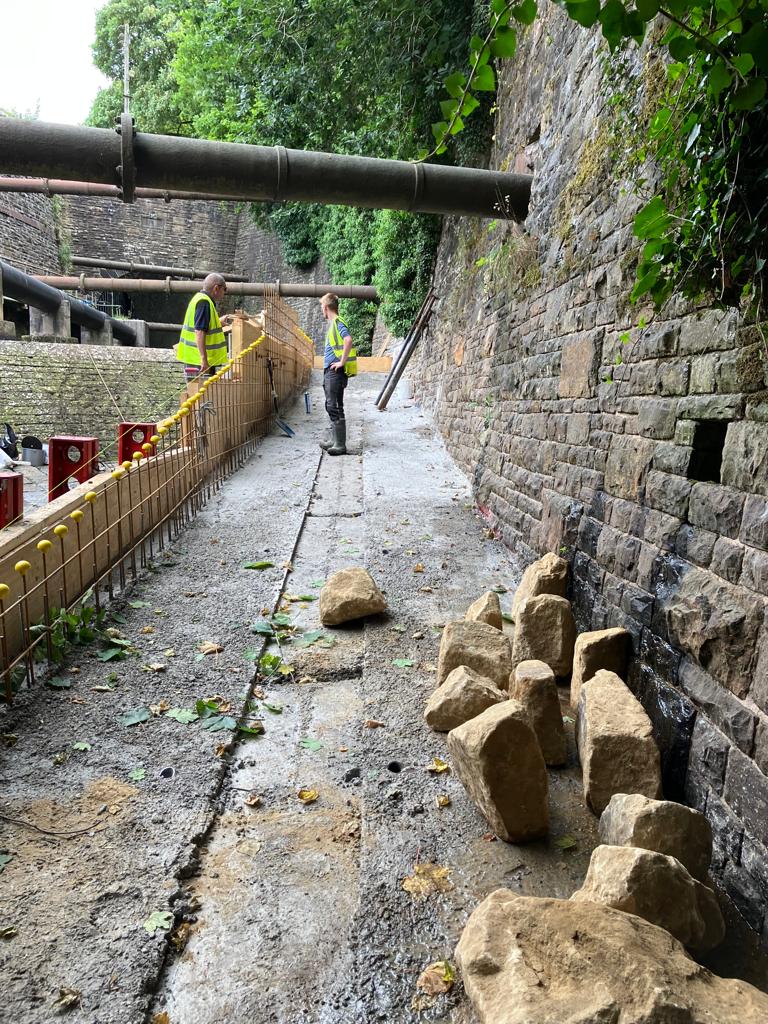
The project will deliver fish passes at 8 sites along the River Douglas with delivery between 2020 and 2022.
1. Gathurst weir
2. Pottery Terrace weir
3. Scholes weir
4. Red Rock weir
5. Worthington weir
6. Downstream Pincroft weir
7. Upstream Pincroft weir
8. Grimeford weir
What will the work achieve?
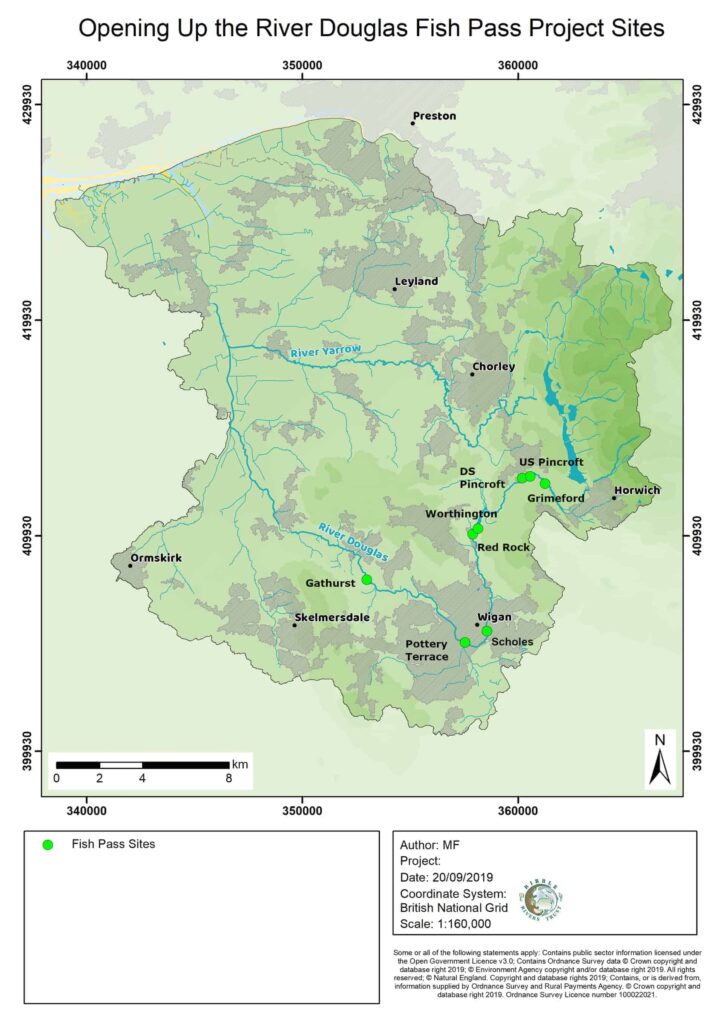
The fish passes will reconnect 106 hectares of the River Douglas catchment. This will benefit all fish but allowing migratory fish such as sea trout and Atlantic salmon to reach as far as Horwich in the future.
This reconnection will improve the ability of fish populations to spawn, reach a larger range of food resources, and recover from high flow or pollution disturbances quicker than before.
The resulting healthier fish populations will support a healthier food chain benefitting birds and mammals also.
How will we determine the projects success?
We will be evaluating every fish pass through mark-recapture studies of fish. These use visual implant elastomer markings and electric fishing surveys to see if upstream and downstream habitats are successfully reconnecting.
Our expert monitoring team are also gathering before and after data to which species are found in our rivers. By comparing the before and after data, we can prove that our work is having a positive impact on river health.
Ribble Rivers Trust will also hold events and survey members of the public to determine whether the improved river environment is providing increased benefit and to gauge public feedback on the works and to direct future works.
This project is possible thanks to: £505,828 of funding from the Ministry for Housing Communities and Local Government through the European Regional Development Fund, £387,347 from delivery partner Groundwork Cheshire, Lancashire and Merseyside, as well as charitable funding from Ribble Rivers Trust.

